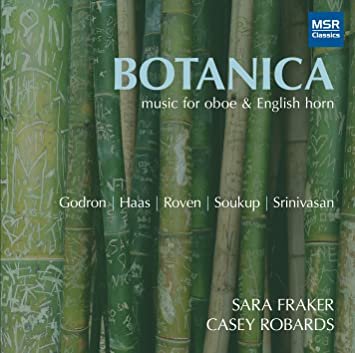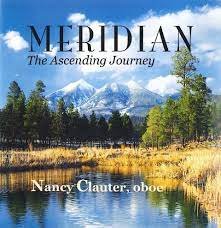To be released on Aug. 30, 2024, Kenneth Overton and Casey Robards present a song project centering the poetry of Paul Laurence Dunbar. The new album, What Dreams We Have is sure to delight. Stay tuned for more.
Listen to the single “The Dove” composed by Anthony Patterson:
https://music.apple.com/us/album/lyrics-of-love-and-laughter-ii-the-dove-single/1759097160
Pre-order here:
Additional Recordings:
Narrative of a Slave Woman with LaToya Lain, soprano
Negro Spirituals as story-telling, illustrating a first-person account of life during American slavery in a script sung and written by Dr. LaToya Lain.
White Sand and Grey Sand by Sarah Maggie Olivo, with Sara Fraker, oboe
A three movement piece for oboe and piano
Exploring intersections between the human and botanical worlds, BOTANICA is a musical entry point into current conversations around environmental and social justice. The six pieces on the album are interrelated, in varying degrees, by threads of common themes and origins: spiritual ecology, poetic text, and resistance to injustice. All are highly expressive in their compositional language. All works are world premiere recordings, with the exception of the Pavel Haas Suite, a masterpiece of the oboe repertoire just beginning to gain full recognition.
Asha Srinivasan's Braiding is a ten-minute piece for oboe, electronics and natural sounds, inspired by Robin Wall Kimmerer's book, Braiding Sweetgrass: Indigenous Wisdom, Scientific Knowledge, and the Teaching of Plants. Elegy for Oboe and Piano, also commissioned for this album, is one of Glen Roven's final compositions before his sudden passing in the summer of 2018. It ends poignantly with an original chorale in the style of Bach, haunted by fleeting oboe embellishments. This chorale finds echoes in Pavel Haas' persistent treatment of the Wenceslas chorale, the most enduring musical symbol of Czech nationalism. It is likely that Haas originally composed the Oboe Suite for tenor voice, with an anti-fascist text so dangerously political that he ultimately decided to give the vocal line to the oboe instead. The oboe melody is often recitative-like, tones shaped around the ghostly forms of secret, vanished syllables. In the Four Songs, composed in the Terezin concentration camp, the original bass voice is re-imagined as a solo English horn line. Musically, the Suite and the Songs are inextricably linked, making this new transcription for English horn and piano a natural fit. The Oboe Sonata by Soukup, though from a later era, retains the intensity of Czech post-tonal language. Godron's whimsical Suite Bucolique finds its home here among music rich with allusions to woodland trees and bamboo forests.
Gang Chen
Morning of Mio Mountain
Bright Sheng
A Night at the Chinese Opera
Bright Sheng
Three Fantasies:
Dream Song
Tibetan Air
Kazakhstan Love Song
Huwei Huang
E’mei Mountain Moon Song
Inspired by Chinese folk tunes from childhood memories, this debut recording from violinist Fangye Sun features both traditional and contemporary works. The variety and beauty of these folk tunes sketch the history, regions, landmarks, as well as the unique culture of the minority ethnic groups of China.
Nancy Clauter dedicated this recording to everyone fighting multiple myeloma.







